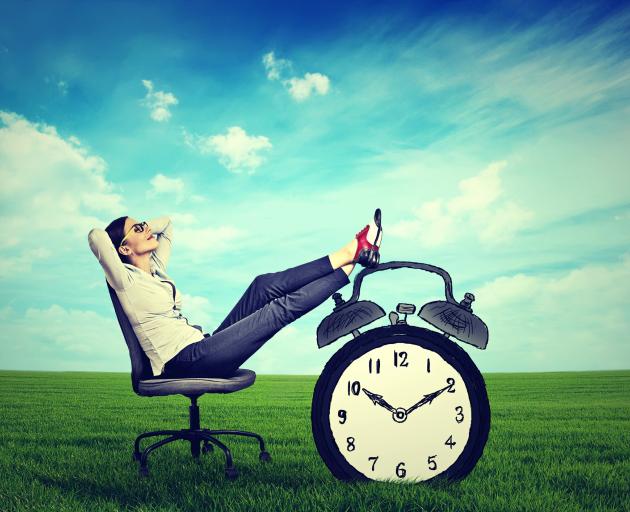
"Life in the fast lane, surely make you lose your mind, life in the fast lane."
Some of you will recognise the opening line from the song, of the same name, by The Eagles.
I have not thought much about it, it is just another great Eagles song from their vast discography. However, the words came flooding back when having a conversation about life pre-digital communication. A time that must seem like the "olden days" to the under-30s!
We were discussing the haste with which emails can be fired off without thinking and how sometimes it's good to think before firing off an email, a text, or Snapchat etc. We react rather than stop to take stock and think.
That led us to discussing how fast-paced life can be and the general effects that has on us.
It's a comment that I hear a lot, that life is too fast-paced. The pace of life leaves people feeling overwhelmed, like hamsters on a spinning wheel going around and around, faster and faster. Eventually, life gets so out of kilter, something breaks ... and it's usually not the spinning wheel.
Life is lived at a fast pace: progress has occurred. But I wonder what's driving that change of pace? It seems there's a fear of missing out if you don't have what everyone else has or you're not doing what everyone else is doing. That we're not "normal" or "good enough" if we're not busy every minute of every day or giving our children every opportunity available and filling up every minute of their days doing stuff.
Technology advances have been enormous but that seems to have enhanced our lives and trapped us at the same time. Some of the very things that were touted as being able to free us up, save time and give us more time to ourselves have conversely enslaved us and controlled us, pushing us to work harder, stay connected and be available 24/7.
Will life continue to speed by? What will the technological advances still to come mean for us? What other material goods will we be chasing in the future?
Those are all questions I can't answer. Rather than being left to react to what happens I'd rather control what I can and lead my life in a way that supports my health and wellbeing: I'd like to slow things down a bit.
That's not a new concept. The "slow living" movement has been around since the mid 1980s.
Living a slower life doesn't mean doing everything at snail's pace and giving up creature comforts. Slow living really means slowing down and thinking twice before doing something, before taking action. It's about creating pockets of space in a day.
We've become habituated to fast: fast decisions, fast food, things becoming urgent even when they're not. That sense of urgency creates a stress response in our systems, the "fight or flight response".
That response releases a cascade of the stress hormones cortisol, adrenaline and noradrenaline. Short term bouts of stress are useful for getting us out of sticky situations and keeping us safe. It's the long term effects of chronic stress and exposure to these hormones that causes us physiological and psychological harm. Fast living is causing increasing amounts of chronic stress.
There are some benefits to living life at a slower pace. Getting out of the "fight or flight" stress response and operating from the "rest and digest" calm response can improve our sleep, bolster our immune system, help prevent cardiac disease, and lower rates of anxiety and depression, just to name a few things.
Doing less also allows us to create an element of "empty space". This down time lets our bodies and minds relax and repair. It's like top sportspeople having built-in recovery time in their training. Both active and relaxing phases are necessary for balance and good performance.
Living more slowly allows us to focus on where we put our energy: we enjoy fewer things more deeply. Being less frantic means we have more chance to connect with what's around us, both our environment and people. Rather than pass like ships in the night we can spend meaningful time deepening and developing relationships.
There are times to be fast and there are times to be slow. We may not always have control over the pressures and pace of life, especially our work lives. Learn to control what you can. For many of us that will mostly be in our personal lives.
First we need to figure out what our priorities and core values are. If we don't, then we risk focusing our time and energy on something that ultimately turns out to be a waste of effort. It also allows us to identify what's important and what's not, and gives us permission to let it go.
Next, think about what aspects of your life feel like they are too fast? What would you like to do more slowly? What things are paced just right?
Focus on slowing down on the things that match your priorities and values. Allow more time to do the things you want to do and get comfortable with quiet or down time. Not every moment of every day needs to be actively filled.
The list of ideas for slowing down on this page is not exhaustive. What would slowing down look like for you? Take a little time to have a think about it and see where you can slow down and create pockets of calm.
Living slowly is not a new message, Aesop wrote about it in The Tortoise and the Hare in the 16th century and he most likely adapted it from early Greek and Latin stories. I wonder when we'll get the hang of it?
Jan Aitken is a Dunedin-based life coach.
For more go to www.fitforlifecoaches.co.nz.
Twitter:@jan-aitken











